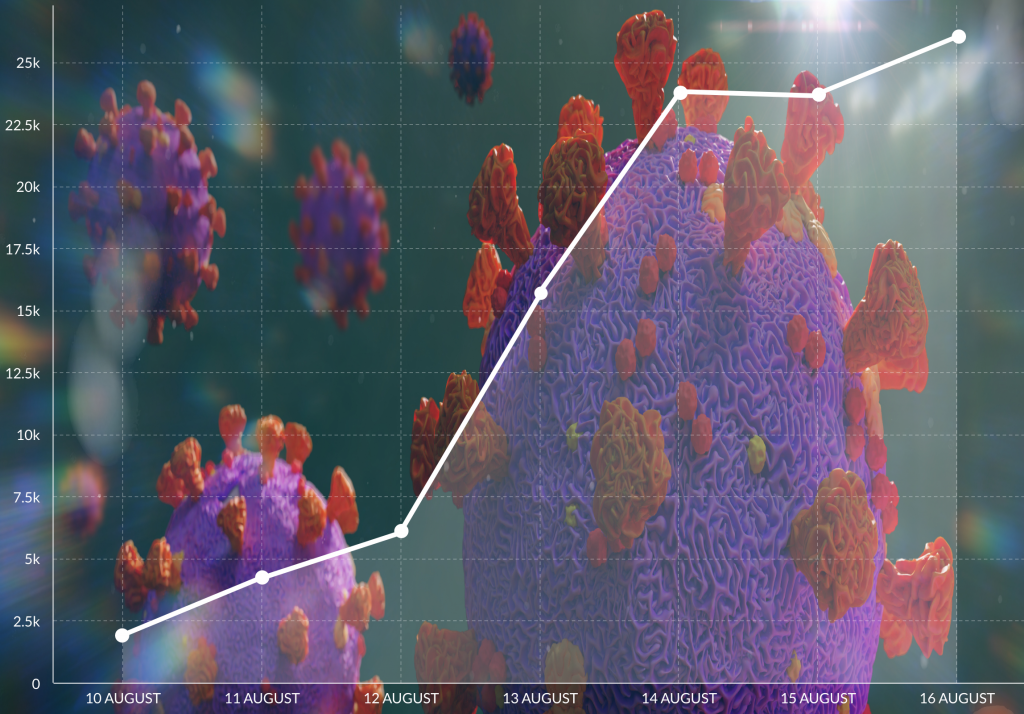Medical laboratory workers are reporting “fatigue is setting in” as huge volumes of Covid testing specimens are processed in laboratories around the country.
Union delegates of APEX, the union for laboratory workers, are reporting that staff across the country’s laboratory network are coping with the large workloads, so far.
“We are seeing some laboratories receive up to 3000 Covid swabs per day, so of course laboratory workers are going to get tired working into the early hours of the morning. The importance of getting timely results to the public has to be balanced against the risk of overuse injuries and fatigue related errors,” said APEX Laboratory National Advocate David Munro.
“There have been a number of machine and IT issues already as the system strains under the volume of work. Taking regular breaks, swapping tasks, stretching and ensuring all overtime is voluntary will be important going forward,” said Mr Munro.
“This second wave of Covid-19 should be a wake-up call for the Ministry of Health that our national network of pathology laboratories needs significant and immediate investment in new laboratories, IT upgrades, and workforce development to ensure that our system is robust for the increasing demands of an aging population in a Covid-19 world.” concluded Mr Munro.
This graph shows the volume of COVID-19 tests being processed in a 7-day period in addition to the normal workload of testing.
ENDS
| Contact: David Munro
Laboratories National Advocate APEX Mobile (027) 276 9999 |
What is a Medical Laboratory Worker?
Medical Laboratory Workers are registered health professionals who run laboratories and test, interpret and report laboratory results. They are trained to identify disease and abnormalities through studying blood, tissue and other bodily samples. Laboratory workers work ‘behind the scenes’ but remain an integral part of the health system whose work is vital to patient treatment. More than 90% of prescribed treatments require laboratory input to aid/confirm diagnosis or to monitor drug levels or disease progression.
Medical laboratory science is a bit like detective work. Workers look for answers to the disease ‘puzzle’ to help doctors diagnose and treat their patients. They answer questions such as: are these cells abnormal? What do these blood cells tell us about this person’s health? How does it fit in with their other symptoms? How much of drug ‘x’ is in this person’s blood? Is it working effectively? What bug is making this person sick?
Medical Laboratory Workers take on a high level of responsibility, often needing to make important decisions under pressure. Emergencies can occur at any time, day or night, so laboratory workers have to prioritise and use their initiative, often without much back-up. If the doctor needs to know the answer, they have to deliver. Sometimes this means working through the night providing results while patients fight for their life in another part of the hospital or a surgeon waits, mid-operation, for a phone call.
Responsibilities include developing, adapting and applying scientific methods of analysis and ensuring high standards of quality assurance. An understanding of the methodology and theory behind complicated, technical and automated equipment is essential, as is developing the skills necessary to identify and interpret abnormalities under the microscope or via other diagnostic technology. Laboratory workers are highly regarded and sought after worldwide.

